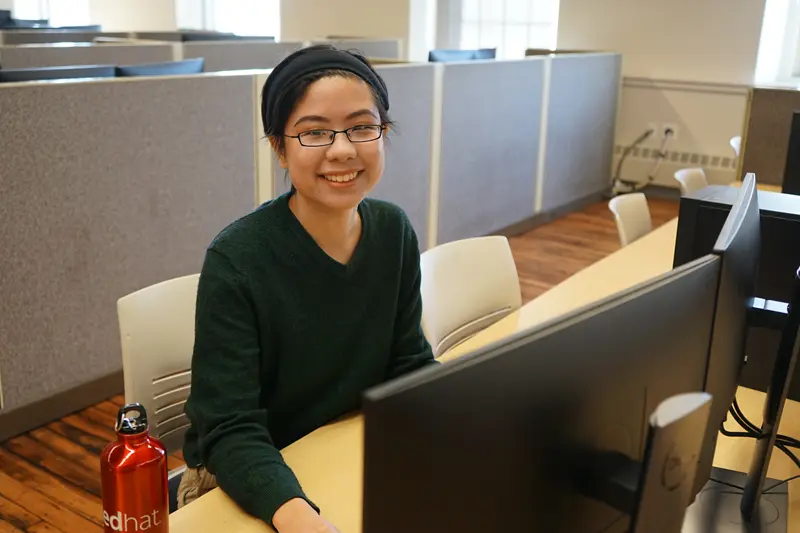UMass Lowell provides an academic and research program where students focus on biology and chemistry, as well as computer science. The net result is the better use of modern computational tools and the development of new tools in all areas of bioinformatics and cheminformatics that are simultaneously more biologically relevant and computationally sophisticated.
To accomplish this goal, we use a three-fold approach:
- First, students learn the use and limitations of emerging software tools and technologies (application).
- Second, student biologists, chemists, mathematicians and computer scientists are encouraged to discover ways in which various tools can be used to solve complex biological problems (development).
- Finally, this new generation of bioinformaticists is trained to develop computational tools with the biological perspective needed to solve evolving biomedical problems.
The Bioinformatics Program at UMass Lowell differs from many other programs in its interdisciplinary approach to the study of bioinformatics and in its emphasis on software tool development rather than solely on tool usage.
Each department provides its own set of requirements for the Bioinformatics Option and each specifies the minimum courses which the student must master in order to work in this interdisciplinary and evolving environment. These provide a strong multidisciplinary background for each student. Although the core curriculum is specific it still allows flexibility for electives supporting the students' selection of a focus for their personalized bioinformatics program.



